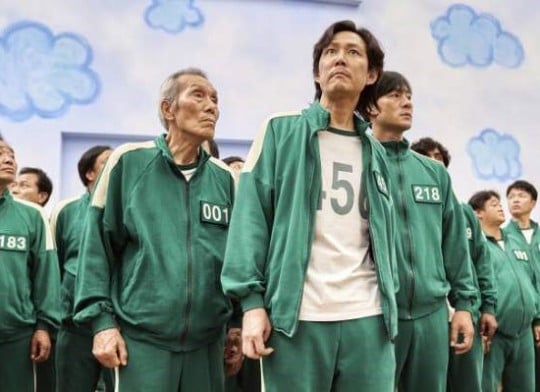The tremendous rise in actors’ appearance fees has become a hindrance to the development of the K-drama industry
K-dramas seem to have surpassed K-movies recently. As the drama industry entered the multi-platform era, the range of choices for watching methods has also widened. However, many actors are still complaining about having no roles to play. It may sound contradictory at first glance, but there are reasons behind this.
One of the major reasons is none other than the skyrocketing appearance fees. Various production companies have raised concerns about the excessive increase in appearance fees of some actors, which has greatly influenced the whole industry. This issue is directly linked to the new environment created by the emergence of global OTT platforms.
◆ Following “Squid Game” Global Hit, Lee Jung-jae Receives 1.5 Billion Won Per “Squid Game 2” Episode
Earlier last year, a top star sparked controversy for demanding 700 million won per episode. According to the Korea Drama Production Association, actor appearance fees recently hit 1 billion won per episode. As of 2020, right ahead of the OTT competition, star actors’ appearance fees were only 350 million won per episode at maximum.

As a result, actors’ appearance fees accounted for half the production budgets. Actor Kim Soo-hyun earned 500 million won per episode for his appearance in Coupang Play’s “One Ordinary Day” released in 2021. Top-level stars such as Lee Jung-jae, Song Joong-ki, Ji Chang-wook, Song Hye-kyo, and Jeon Ji-hyun are known to have received appearances fees of hundreds of millions of won.
Within only one or two years, the appearance fees have doubled.
Netflix’s influence changed everything. It is estimated that the appearance fees for Lee Jung-jae, the male lead of the global hit series “Squid Game”, will real 1.5 billion won per episode in Season 2. This number is incomparable in the Korean drama industry.
◆ The Number Of Drama Productions Has Decreased Since Last Year
The priority for production companies when planning a drama is casting the lead actors. It is because the box office possibility of a drama varies depending on which actor they use. Despite the high appearance fees, they tend to prefer star actors who guarantee popularity. However, there are not many star actors. According to the principles of supply and demand, prices inevitably soar when demand is high but the supply is low.

Last year, there were a total of 123 drama productions, including OTT, showing the first decline since the Covid-19 pandemic. The record in 2020 was around 100 then increased to 116 in 2021 and 141 in 2022 before plummeting.

Leave a Reply